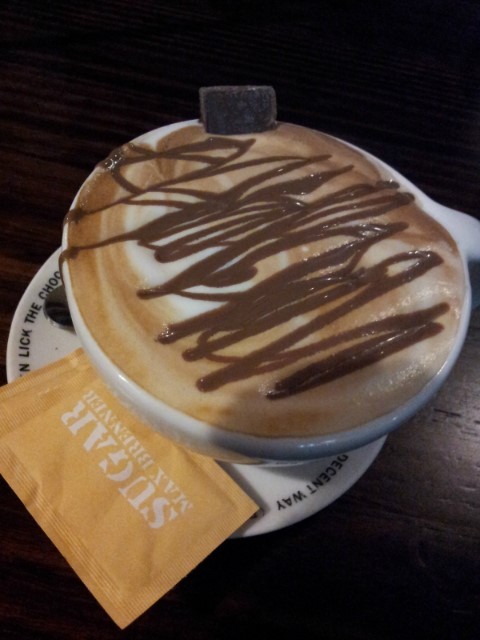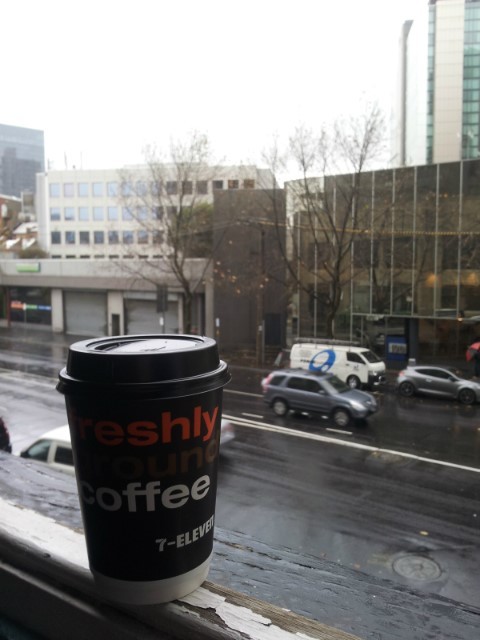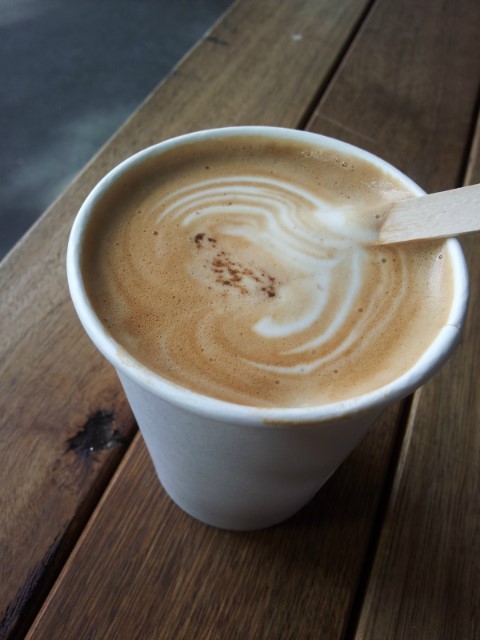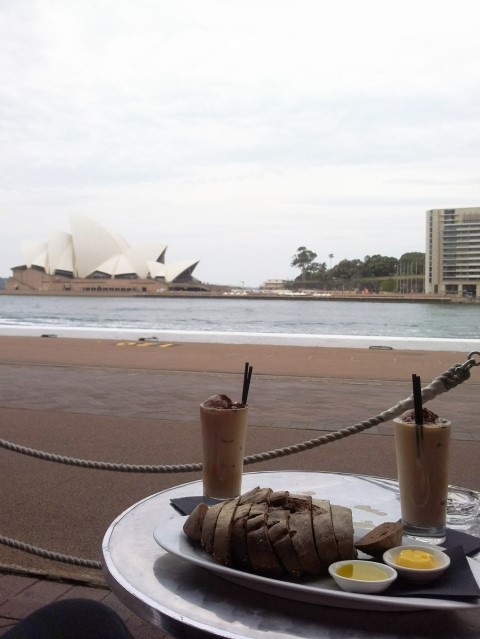2015. 7. 15. 10:19 Ours/영어공부
TED - Johann Hari: Everything you think you know about addiction is wrong
Filmed June 2015 at TEDGlobalLondon
Johann Hari: Everything you think you know about addiction is wrong
0:11One of my earliest memoriesis of trying to wake up one of my relatives and not being able to.And I was just a little kid, so I didn't really understand why,but as I got older,I realized we had drug addiction in my family,including later cocaine addiction.
0:24I'd been thinking about it a lot lately, partly because it's now exactly 100 yearssince drugs were first banned in the United States and Britain,and we then imposed that on the rest of the world.It's a century since we made this really fateful decisionto take addicts and punish them and make them suffer,because we believed that would deter them; it would give them an incentive to stop.
0:47And a few years ago, I was looking at some of the addicts in my life who I love,and trying to figure out if there was some way to help them.And I realized there were loads of incredibly basic questionsI just didn't know the answer to,like, what really causes addiction?Why do we carry on with this approach that doesn't seem to be working,and is there a better way out there that we could try instead?
1:09So I read loads of stuff about it,and I couldn't really find the answers I was looking for,so I thought, okay, I'll go and sit with different people around the worldwho lived this and studied thisand talk to them and see if I could learn from them.And I didn't realize I would end up going over 30,000 miles at the start,but I ended up going and meeting loads of different people,from a transgender crack dealer in Brownsville, Brooklyn,to a scientist who spends a lot of time feeding hallucinogens to mongoosesto see if they like them --it turns out they do, but only in very specific circumstances --to the only country that's ever decriminalized all drugs,from cannabis to crack, Portugal.And the thing I realized that really blew my mind is,almost everything we think we know about addiction is wrong,and if we start to absorb the new evidence about addiction,I think we're going to have to change a lot more than our drug policies.
1:57But let's start with what we think we know, what I thought I knew.Let's think about this middle row here.Imagine all of you, for 20 days now, went off and used heroin three times a day.Some of you look a little more enthusiastic than others at this prospect.(Laughter)Don't worry, it's just a thought experiment.Imagine you did that, right?What would happen?Now, we have a story about what would happen that we've been told for a century.We think, because there are chemical hooks in heroin,as you took it for a while,your body would become dependent on those hooks,you'd start to physically need them,and at the end of those 20 days, you'd all be heroin addicts. Right?That's what I thought.
2:33First thing that alerted me to the fact that something's not right with this storyis when it was explained to me.If I step out of this TED Talk today and I get hit by a car and I break my hip,I'll be taken to hospital and I'll be given loads of diamorphine.Diamorphine is heroin.It's actually much better heroin than you're going to buy on the streets,because the stuff you buy from a drug dealer is contaminated.Actually, very little of it is heroin,whereas the stuff you get from the doctor is medically pure.And you'll be given it for quite a long period of time.There are loads of people in this room,you may not realize it, you've taken quite a lot of heroin.And anyone who is watching this anywhere in the world, this is happening.And if what we believe about addiction is right --those people are exposed to all those chemical hooks --What should happen? They should become addicts.This has been studied really carefully.It doesn't happen; you will have noticed if your grandmother had a hip replacement,she didn't come out as a junkie. (Laughter)
3:24And when I learned this, it seemed so weird to me,so contrary to everything I'd been told, everything I thought I knew,I just thought it couldn't be right, until I met a man called Bruce Alexander.He's a professor of psychology in Vancouverwho carried out an incredible experimentI think really helps us to understand this issue.Professor Alexander explained to me,the idea of addiction we've all got in our heads, that story,comes partly from a series of experimentsthat were done earlier in the 20th century.They're really simple experiments.You can do them tonight at home if you feel a little bit sadistic.You get a rat and you put it in a cage, and you give it two water bottles:One is just water, and the other is water laced with either heroin or cocaine.If you do that, the rat will almost always prefer the drug waterand almost always kill itself quite quickly.So there you go, right? That's how we think it works.In the '70s, Professor Alexander comes along and he looks at this experimentand he noticed something.He said ah, we're putting the rat in an empty cage.It's got nothing to do except use these drugs.Let's try something a bit different.So Professor Alexander built a cage that he called "Rat Park,"which is basically heaven for rats.They've got loads of cheese, they've got loads of colored balls,they've got loads of tunnels.Crucially, they've got loads of friends. They can have loads of sex.And they've got both the water bottles, the normal water and the drugged water.But here's the fascinating thing:In Rat Park, they don't like the drug water.They almost never use it.None of them ever use it compulsively.None of them ever overdose.You go from almost 100 percent overdose when they're isolatedto zero percent overdose when they have happy and connected lives.
4:58Now, when he first saw this, Professor Alexander thought,maybe this is just a thing about rats, they're quite different to us.Maybe not as different as we'd like, but, you know --But fortunately, there was a human experimentinto the exact same principle happening at the exact same time.It was called the Vietnam War.In Vietnam, 20 percent of all American troops were using loads of heroin,and if you look at the news reports from the time,they were really worried, because they thought, my God, we're going to havehundreds of thousands of junkies on the streets of the United Stateswhen the war ends; it made total sense.Now, those soldiers who were using loads of heroin were followed home.The Archives of General Psychiatry did a really detailed study,and what happened to them?It turns out they didn't go to rehab. They didn't go into withdrawal.Ninety-five percent of them just stopped.Now, if you believe the story about chemical hooks,that makes absolutely no sense, but Professor Alexander began to thinkthere might be a different story about addiction.He said, what if addiction isn't about your chemical hooks?What if addiction is about your cage?What if addiction is an adaptation to your environment?
6:03Looking at this,there was another professor called Peter Cohen in the Netherlandswho said, maybe we shouldn't even call it addiction.Maybe we should call it bonding.Human beings have a natural and innate need to bond,and when we're happy and healthy, we'll bond and connect with each other,but if you can't do that,because you're traumatized or isolated or beaten down by life,you will bond with something that will give you some sense of relief.Now, that might be gambling, that might be pornography,that might be cocaine, that might be cannabis,but you will bond and connect with something because that's our nature.That's what we want as human beings.
6:39And at first, I found this quite a difficult thing to get my head around,but one way that helped me to think about it is,I can see, I've got over by my seat a bottle of water, right?I'm looking at lots of you, and lots of you have bottles of water with you.Forget the drugs. Forget the drug war.Totally legally, all of those bottles of water could be bottles of vodka, right?We could all be getting drunk -- I am right after this -- (Laughter) --but we're not.Now, because you've been able to afford the approximately gazillion poundsthat it costs to get into a TED Talk, I'm guessing you guys could affordto be drinking vodka for the next six months.You wouldn't end up homeless.You're not going to do that, and the reason you're not going to do thatis not because anyone's stopping you.It's because you've got bonds and connectionsthat you want to be present for.You've got work you love. You've got people you love.You've got healthy relationships.And a core part of addiction,I came to think, and I believe the evidence suggests,is about not being able to bear to be present in your life.
7:37Now, this has really significant implications.The most obvious implications are for the War on Drugs.In Arizona, I went out with a group of womenwho were made to wear t-shirts saying, "I was a drug addict,"and go out on chain gangs and dig graves while members of the public jeer at them,and when those women get out of prison, they're going to have criminal recordsthat mean they'll never work in the legal economy again.Now, that's a very extreme example, obviously, in the case of the chain gang,but actually almost everywhere in the worldwe treat addicts to some degree like that.We punish them. We shame them. We give them criminal records.We put barriers between them reconnecting.There was a doctor in Canada, Dr. Gabor Maté, an amazing man,who said to me, if you wanted to design a system that would make addiction worse,you would design that system.
8:23Now, there's a place that decided to do the exact opposite,and I went there to see how it worked.In the year 2000, Portugal had one of the worst drug problems in Europe.One percent of the population was addicted to heroin, which is kind of mind-blowing,and every year, they tried the American way more and more.They punished people and stigmatized them and shamed them more,and every year, the problem got worse.And one day, the Prime Minister and the leader of the opposition got together,and basically said, look, we can't go onwith a country where we're having ever more people becoming heroin addicts.Let's set up a panel of scientists and doctorsto figure out what would genuinely solve the problem.And they set up a panel led by an amazing man called Dr. João Goulão,to look at all this new evidence,and they came back and they said,"Decriminalize all drugs from cannabis to crack, but" --and this is the crucial next step --"take all the money we used to spend on cutting addicts off,on disconnecting them,and spend it instead on reconnecting them with society."And that's not really what we think of as drug treatmentin the United States and Britain.So they do do residential rehab,they do psychological therapy, that does have some value.But the biggest thing they did was the complete opposite of what we do:a massive program of job creation for addicts,and microloans for addicts to set up small businesses.So say you used to be a mechanic.When you're ready, they'll go to a garage, and they'll say,if you employ this guy for a year, we'll pay half his wages.The goal was to make sure that every addict in Portugalhad something to get out of bed for in the morning.And when I went and met the addicts in Portugal,what they said is, as they rediscovered purpose,they rediscovered bonds and relationships with the wider society.
10:00It'll be 15 years this year since that experiment began,and the results are in:injecting drug use is down in Portugal,according to the British Journal of Criminology,by 50 percent, five-zero percent.Overdose is massively down, HIV is massively down among addicts.Addiction in every study is significantly down.One of the ways you know it's worked so well is that almost nobody in Portugalwants to go back to the old system.
10:23Now, that's the political implications.I actually think there's a layer of implicationsto all this research below that.We live in a culture where people feel really increasingly vulnerableto all sorts of addictions, whether it's to their smartphonesor to shopping or to eating.Before these talks began -- you guys know this --we were told we weren't allowed to have our smartphones on,and I have to say, a lot of you looked an awful lot likeaddicts who were told their dealer was going to be unavailablefor the next couple of hours. (Laughter)A lot of us feel like that, and it might sound weird to say,I've been talking about how disconnection is a major driver of addictionand weird to say it's growing,because you think we're the most connected society that's ever been, surely.But I increasingly began to think that the connections we haveor think we have, are like a kind of parody of human connection.If you have a crisis in your life, you'll notice something.It won't be your Twitter followers who come to sit with you.It won't be your Facebook friends who help you turn it round.It'll be your flesh and blood friends who you have deep and nuancedand textured, face-to-face relationships with,and there's a study I learned about from Bill McKibben, the environmental writer,that I think tells us a lot about this.He looked at the number of close friends the average American believesthey can call on in a crisis.That number has been declining steadily since the 1950s.The amount of floor space an individual has in their homehas been steadily increasing,and I think that's like a metaphorfor the choice we've made as a culture.We've traded floorspace for friends, we've traded stuff for connections,and the result is we are one of the loneliest societies there has ever been.And Bruce Alexander, the guy who did the Rat Park experiment, says,we talk all the time in addiction about individual recovery,and it's right to talk about that,but we need to talk much more about social recovery.Something's gone wrong with us, not just with individuals but as a group,and we've created a society where, for a lot of us,life looks a whole lot more like that isolated cageand a whole lot less like Rat Park.
12:15If I'm honest, this isn't why I went into it.I didn't go in to the discover the political stuff, the social stuff.I wanted to know how to help the people I love.And when I came back from this long journey and I'd learned all this,I looked at the addicts in my life,and if you're really candid, it's hard loving an addict,and there's going to be lots of people who know in this room.You are angry a lot of the time,and I think one of the reasons why this debate is so chargedis because it runs through the heart of each of us, right?Everyone has a bit of them that looks at an addict and thinks,I wish someone would just stop you.And the kind of scripts we're told for how to deal with the addicts in our livesis typified, I think,the reality show "Intervention," if you guys have ever seen it.I think everything in our lives is defined by reality TV,but that's another TED Talk.If you've ever seen the show "Intervention,"it's a pretty simple premise.Get an addict, all the people in their life, gather them together,confront them with what they're doing, and they say, if you don't shape up,we're going to cut you off.So what they do is they take the connection to the addict,and they threaten it, they make it contingenton the addict behaving the way they want.And I began to think, I began to see why that approach doesn't work,and I began to think that's almost like the importing of the logic of the Drug Warinto our private lives.
13:33So I was thinking, how could I be Portuguese?And what I've tried to do now, and I can't tell you I do it consistentlyand I can't tell you it's easy,is to say to the addicts in my lifethat I want to deepen the connection with them,to say to them, I love you whether you're using or you're not.I love you, whatever state you're in,and if you need me, I'll come and sit with youbecause I love you and I don't want you to be aloneor to feel alone.
14:00And I think the core of that message --you're not alone, we love you --has to be at every level of how we respond to addicts,socially, politically and individually.For 100 years now, we've been singing war songs about addicts.I think all along we should have been singing love songs to them,because the opposite of addiction is not sobriety.The opposite of addiction is connection.
14:27Thank you.
14:29(Applause)
'Ours > 영어공부' 카테고리의 다른 글
| TED- Aspen Baker: A better way to talk about abortion (0) | 2015.07.15 |
|---|---|
| Adidas to make shoes from ocean garbage (9th July, 2015) (0) | 2015.07.15 |
| Time-out from Eurozone possible for Greece (15th July, 2015) (0) | 2015.07.15 |
| Mount Fuji gets free Wi-Fi (12th July, 2015) (0) | 2015.07.15 |













